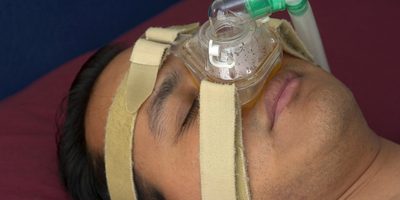
George Institute receives MRFF grant to transform patient care following stroke
Cardiovascular researchers at the George Institute for Global Health have been awarded funding for The LOTUS Trial (LOw dose combinations To improve stroke oUtcomeS) from the Medical Research Future Fund (MRFF) to determine if a new model of care can improve the critical risk factors of blood pressure and cholesterol management in stroke survivors.
Dr Sonali Gnanenthiran, chief investigator and cardiologist at The George Institute said there is an urgent need to improve secondary stroke prevention. More than 445,000 stroke survivors are living with this debilitating condition and a further 27,400 Australians experience a stroke each year1.
Currently only one in ten Australians who have experienced a stroke achieve the recommended targets for long-term blood pressure and cholesterol putting them at high risk of recurrent strokes and heart attacks.
“The $2.5 million MRFF Cardiovascular Health Mission grant over five years provides us with a huge opportunity to engage with patients, carers, doctors and nurses to simplify care and transform the way we manage stroke patients once they leave hospital, regardless of where they live,” she explained.
The LOTUS Trial will assess whether early use of low doses of combination therapy to treat blood pressure and cholesterol will achieve better outcomes than usual care. Central to the plan to improve blood pressure is a new multi-mechanism, single pill combining three anti-hypertensive medications at low doses, developed by George Medicines. The team-based program will also involve nurse-led telehealth, involving 400 people across trial sites across Australia. Nurses will phone trial participants to support therapy and encourage adherence.
“This new model of care has simplicity and support at its core, which we anticipate will result in clinically significant reductions in blood pressure and cholesterol in this high risk population,” said Dr Gnanenthiran.
Blood pressure and cholesterol are the most treatable risk factors for preventing cardiovascular events in stroke survivors. Despite this, up to 30% of ischaemic stroke survivors cease medications for both these conditions within one year of experiencing their stroke.
“Small reductions in blood pressure and cholesterol make a big difference so we have to get better at keeping people on their medications,” said Dr Gnanenthiran. ‘’A 10 mmHg reduction in systolic blood pressure translates to a one-third reduction in recurrent stroke and up to a 20% reduction in cardiovascular events. Every 1 mmol/L reduction in LDL translates to approximately 20% reduction in stroke.’’
Reference
Stroke Foundation. No Postcode Untouched. Stroke in Australia. Nov 2020. https://strokefoundation.org.au/media/juuba3qm/no-postcode-untouched-30-october-final-report.pdf



